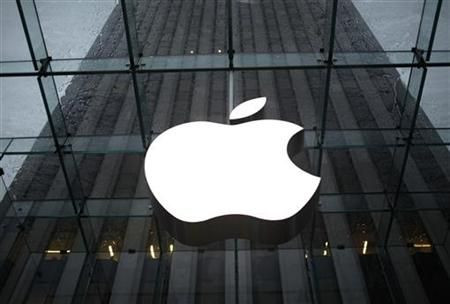Is Apple Finally Ready for a TV?

The long-awaited biography, Steve Jobs by Walter Isaacson, was made available Monday. Isaacson briefly mentions that Jobs wanted to create a television with a simple user interface, rescuing consumers from multiple confusing remotes.
With regard to a television, Isaacson quotes Jobs as stating that, It will have the simplest user interface you could imagine, and I finally cracked it. The market has been speculating Apple would make a full-fledged television for years.
However, our checks have yet to reveal anything more than prototypes and a strong desire to work with Apple within the supply chain from key players - who obviously want a piece of the lucrative business, said Ben Reitzes, an analyst at Barclays Capital.
To be clear, the speculation with regard to an iTV was much different at this stage than the more conclusive activity that led up to the iPad or iPhone, said Reitzes.
While Reitzes believes that Apple covets the TV market, its complex structure has made it more difficult to tap. For example, Apple runs into a conflict with the cable companies (who control the pipes), in terms of iTunes competing with on demand capabilities, he said.
Also live sports programming is one of the most important reasons to have and watch TV - and this area of content is hard for iTunes to compete in. He believes Apple has floated the idea of a version of iOS running on set top boxes, but he cannot imagine cable companies being receptive to this idea.
Furthermore, Reitzes believes it is difficult for Apple Inc. to integrate so many complex functions and standards in the remote controls used by so many cable companies. As a result, a truly integrated TV is much tougher for Apple to tackle since it cannot control the end-to-end processes.
The other obstacle of TV is design. Apple generally thrives in making devices thinner, smaller and ultraportable with leading features. It is hard to imagine what Apple could bring to the table given several new HDTV's are not much more than a pane of glass a few inches thick.
Reitzes believes all these issues are the reason Apple settled on Apple TV, a disruptive concept that fits snugly into an HDMI port. He finds users of Apple TV love the product, but for multiple reasons the concept just hasn't taken hold like a typical Apple device.
Even with all the inefficiencies and obstacles in the TV market, Apple is clearly laying the groundwork for a bigger move into TV's. For example Apple's heightened use of Airplay, which broadcasts content from iOS devices to the TV seems to have the potential to expand Apple's presence in the living room.
It seems that Apple's TV strategy may entail the ultimate ubiquity of its iOS devices (iPhones, iPads and iPod Touches). If these devices are in the consumer's pocket, it could act as a remote or a hub in and of itself, said Reitzes.
As there are over 250 million of these devices in the field, it would make sense that they should interact seamlessly with a television, not only helping give the TV access to content, but iOS games as well. The other wild card for any Apple television is touch technology, and how it could be used.
Reitzes said TV panels would obviously be hard to make with touch panels but Apple could do this over time in his opinion. Touch, along with motion sensing (think Kinect for Xbox 360) could be killer apps for televisions. While TV's are already thin (like a Mac), they don't integrate these things, which Apple could.
All in all, Jobs' comments to Isaacson are telling to us. If Steve wanted to do this, it's hard to believe Apple isn't working on it. However, we don't believe Apple will do anything short of revolutionary and we are not going to proclaim that anything will be ready in 2012, said Reitzes.
Reitzes believes that Apple is more likely to focus first on iPad 3, iPhone 5 and a new line of Macs (some with new processors or new technology) in 2012, and then roll out a TV the next year.
If Apple were to sell a TV, he believes its margins and pricing could be industry leading given its dominance in the supply chain and its potential to drive premium pricing. For the sake of argument, according to Barclays Capital's Amir Rozwadowski and Olga Levinzon of Display and Lighting Team, the TV market could top 250 million units in the calendar 2012.
If one were to assume Apple could get 5 percent share of this market over time, with an average selling price of $1,500, the new segment would equate to over 19 billion in revenue or about 11 percent of Reitzes' fiscal 2013 estimate of $166.5 billion.
Assuming a gross margin of about 30 percent, the incremental margin dollars could contribute about $4.50 to EPS or 11 percent of his fiscal 2013 EPS estimate of $39.60.
The brokerage reiterated its overweight rating on shares of Apple with a price target of $555.
Apple stock is trading up 0.36 percent at $407.25 in the pre-market on the NASDAQ Stock Market.
© Copyright IBTimes 2024. All rights reserved.





















